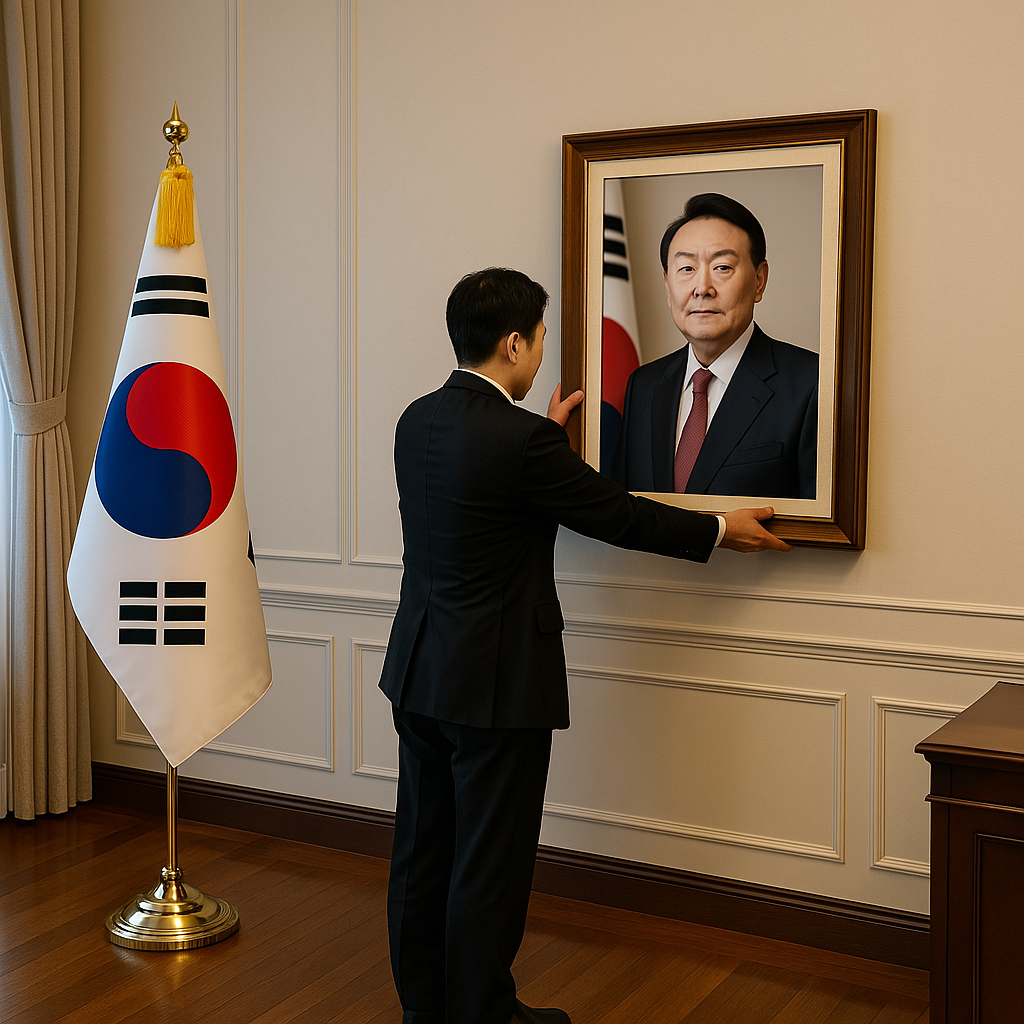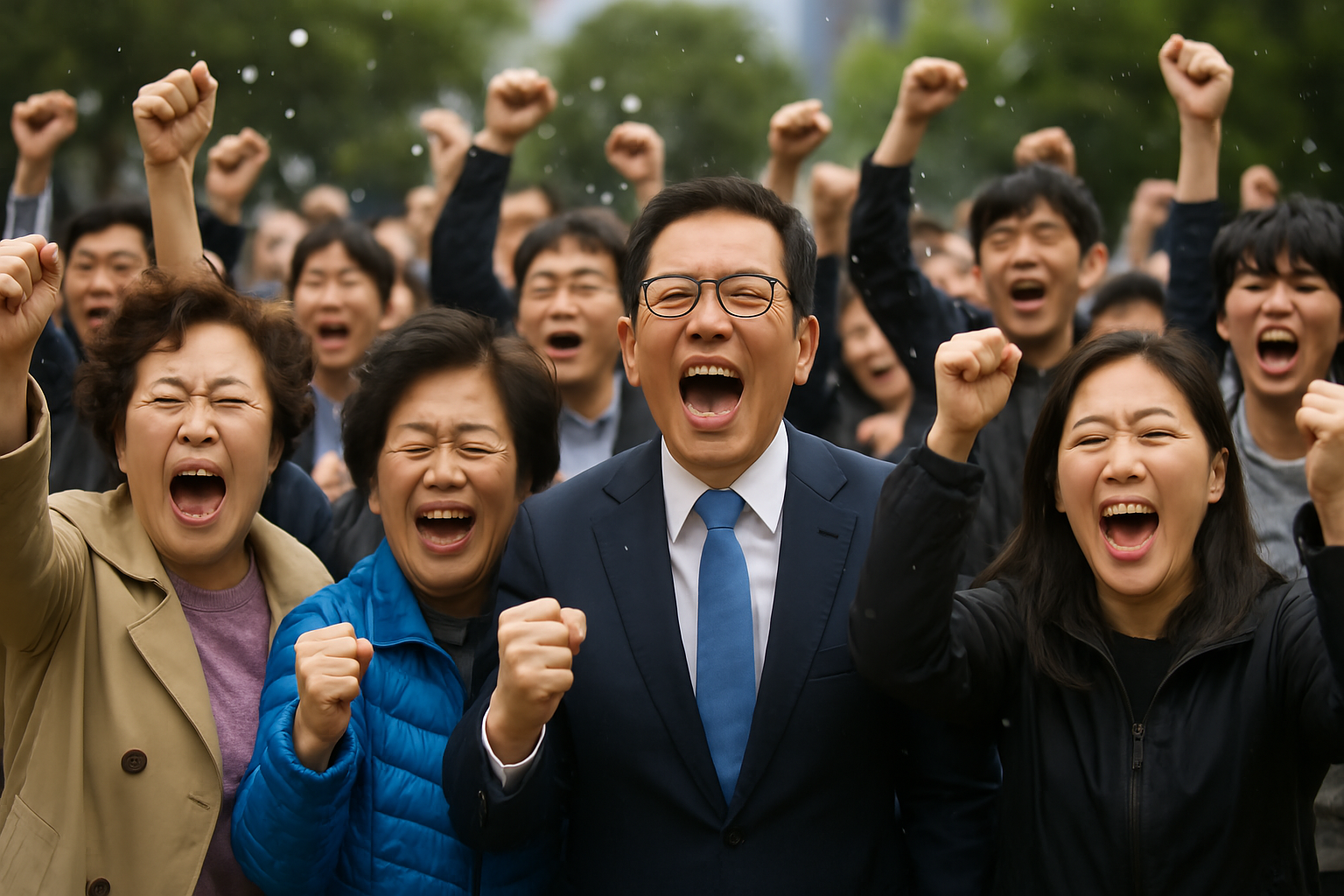On April 4, 2025, South Korea’s Constitutional Court officially removed President Yoon Suk Yeol from office. The court made this decision unanimously after he declared martial law in December, which caused a major crisis in the country.
Martial law means the military takes control of certain parts of the government. President Yoon did this by sending soldiers to block lawmakers in the National Assembly. Acting Chief Justice Moon Hyung-bae said this action was a “grave betrayal of the people’s trust” and “a serious challenge to democracy.” He also said, “There was no national emergency, and such a decree was simply unconstitutional.”
President Yoon’s declaration only lasted six hours, but it caused chaos. Lawmakers forced their way into the parliament building to vote against it. Many people across the country were shocked and angry. They held rallies, demanding Yoon be removed.
One student protester, Jang Jaeeuk, said, “This is the day I’ve been waiting for over the past four months of protesting.”
Now that Yoon has been removed, South Korea must hold a new election within 60 days. Prime Minister Han Duck-soo is serving as acting president until a new leader is chosen. Lee Jae-myung, a former lawyer who lost narrowly to Yoon in the 2022 election, is seen as a top candidate. He said, “Today marks the beginning of a true South Korea.”

Before becoming president in 2022, Yoon was a prosecutor who helped impeach another president, Park Geun-hye. Now, he is the second South Korean president to be removed by the court.
Even though he is out of office, Yoon still faces serious legal problems. He is being charged with insurrection, a crime that could bring life in prison. After the ruling, Yoon said, “I am regretful and sorry that I could not live up to your expectations.”
People across the country reacted in different ways. Many celebrated outside the court, cheering and waving flags. Others, especially his supporters, were upset. Police had prepared for possible unrest by setting up barricades and warning against violence.
Experts say the country must now focus on healing its divisions and preparing for the challenges ahead, including dealing with North Korea, pressure from China, and trade issues with the United States. One professor said, “South Korea has managed to avoid the worst outcomes and can see light at the end of a long political crisis.”
This article is based on the following articles:
https://www.cnn.com/2025/04/03/asia/yoon-impeachment-verdict-south-korea-intl-hnk/index.html
https://www.nytimes.com/2025/04/04/world/asia/south-korea-removes-impeached-president.html

Background Information
1. What is Martial Law?
Martial law is a situation in which the military takes control over normal government functions. It is usually declared during times of extreme emergency, such as war or natural disaster, when the civilian government is unable to function properly. Under martial law, military officers can replace elected leaders, restrict people’s rights, and take control of the police and other services.
In democratic countries, martial law is a very serious action and can only be declared under special conditions because it takes power away from the people and their elected officials.
2. What Is Impeachment?
Impeachment is the process by which a government official, such as a president, is officially accused of wrongdoing. It does not always mean removal from office, but it begins a legal and political process that can lead to that outcome. In South Korea, after the National Assembly (similar to a congress or parliament) votes to impeach a president, the Constitutional Court decides whether to uphold the impeachment and remove the president from office.
3. South Korea’s Political System
South Korea is a democracy, meaning the people vote for their leaders. It has a president who serves as the head of government and state, similar to the U.S. president. The country also has a National Assembly, which is like a legislature or congress, responsible for making laws. South Korea’s Constitutional Court ensures that laws and actions by government leaders follow the country’s Constitution.
4. Why South Korea Is Important Globally
South Korea is one of the most advanced economies in the world and is known for companies like Samsung, Hyundai, and LG. It is also a key ally of the United States, especially in dealing with security issues related to North Korea. Its political stability matters not only to its own people, but also to the region and the world.
5. The History of Military Rule in South Korea
From the 1960s to the 1980s, South Korea was ruled by military leaders. People did not have many freedoms, and elections were not always fair. Over time, the Korean people protested and fought for democracy, leading to big changes in the late 1980s. Since then, South Korea has been a free democracy, and many people remember how hard they had to fight for that freedom. Because of this history, even the idea of martial law today brings back painful memories for older generations.
6. Who Is Yoon Suk Yeol?
Before becoming president, Yoon Suk Yeol was a prosecutor, which is a type of government lawyer who investigates and brings legal charges against people who break the law. He became well known in South Korea for investigating corrupt politicians, including a former president. This made him popular among some voters who wanted strong leadership and action against corruption.
7. What Is the Constitutional Court?
The Constitutional Court is the highest court in South Korea that deals with questions about the country’s Constitution. When the National Assembly impeaches a president, the Constitutional Court decides if the president broke the law or the Constitution. If they agree, the president is removed from office. The court’s decision is final and must be followed.
8. What Happens After a President Is Removed?
When a president is removed, South Korea’s Constitution requires that a new election be held within 60 days. In the meantime, the prime minister becomes the acting president. The country continues to function normally, but without an elected leader until the election takes place.
9. What Is Political Polarization?
Political polarization means that people have strong and opposing opinions about their leaders or political ideas. In South Korea, like in many other countries, people can be divided between conservatives and liberals. This can lead to protests, strong debates, and even fights over the direction the country should take.
10. Why Is This Event Historic?
Only two presidents in South Korea’s history have ever been removed through impeachment by the Constitutional Court. Both were conservatives. This kind of event shows that even the most powerful leaders must follow the law in a democracy. It also shows how the people, courts, and lawmakers can work together to protect the country’s democracy and Constitution.

Debate/Essay Questions
- Does this event make South Korea’s democracy stronger or weaker?
- Should former leaders face criminal charges for their actions in office?
Please subscribe to Insight Fortnight, our biweekly newsletter!
